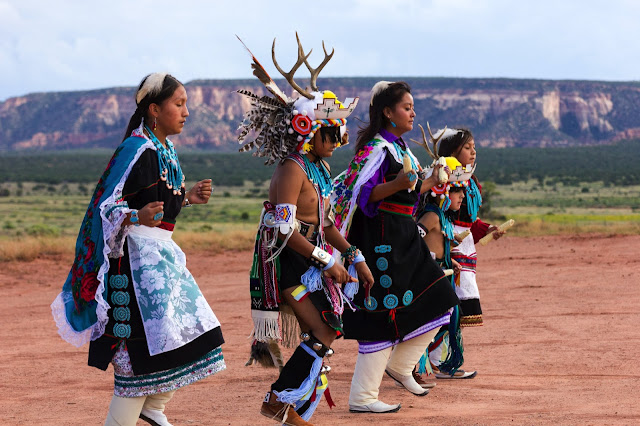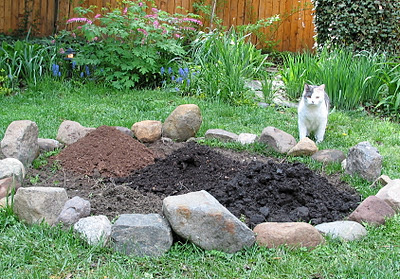Carnage on the Plains, part 3
Part three of an article series published in Indian Country Today in 2012. For more on topics like this, see my book, American Apartheid: The Native American Struggle....
I spoke to a tribal member who spent years patronizing Whiteclay’s beer stores but has
now sobered up and turned his life around. He described alcohol’s devastating, multi-generational effects. He also asked to remain anonymous,
for fear of retribution.
Will the tribe’s lawsuit
against the beer makers, distributors and sellers help?
I think it will, because Whiteclay is where a lot of people on Pine
Ridge get alcohol. It’s a short walk [as shown below] from Pine Ridge village,
the biggest population center on the reservation, right over the South
Dakota–Nebraska line. Sometimes people go several times a day. So if you stop
the liquor trade in Whiteclay, you severely limit access to alcohol on Pine
Ridge.
Is
policing effective in Whiteclay?
The tribe doesn’t have jurisdiction in the town, so all you get is an occasional patrol
car coming by from the county sheriff in Rushville, 20 miles away. But I’ve watched
the law just sit there while people get beaten. At night, you can hang around Whiteclay
and watch the fights. There’s all kinds of lawbreaking; I observed a child selling beer in one of the stores. The white
people of Whiteclay don’t care about any of
this, Nebraska doesn’t care, and the federal government doesn’t care.
Why do you think that is?
Alcohol is a weapon. It’s like dropping a virus on us. They’re letting
us kill ourselves with liquor. My grandma told me this long ago, and she was
right. Alcohol touches every one of our families in one way or another, which
creates complete and total misery. I know that for a fact. I’ve seen so many
people die—some of alcohol’s direct physical effects, such as cirrhosis of the
liver, some in drunken car crashes and others, including children, committing
suicide, hanging themselves in sorrow over a relative’s death from alcohol.
This is true in my family and everyone else’s. Often several people you’re
close to—family and friends—will die in the space of a few weeks.
Is racism a factor?
Around here, in South Dakota and northern Nebraska, there’s a lot of
racism, and that feeds any problems on the reservation. Racism is a
constant. If I, a Native person, go into one of the little Nebraska towns, the
cops stop me right away and ask if I’ve been drinking. ‘Have you had a drink?’
they ask. Shopkeepers follow me around their stores, watching to see if I’ll
steal something. It makes me so angry. I went to Lincoln, Nebraska, and found
no racism. It was strange to me. But they have a lot of cultures living
together there, and that helps people understand each other.
Many white towns in the area are like ghost towns—tiny, nearly
empty. Then you’ve got Whiteclay, which is also very small but very
busy [as shown left], doing millions of dollars in business off Native Americans. Liquor stores
in Whiteclay charge relatively high prices—$30 for a case of beer, when it’s
less than $20 in nearby towns—which means they can be more profitable
in Whiteclay than elsewhere. That’s hard to fight.
You mentioned
children. How early do alcohol’s effects begin?
If their mothers drink, it starts before they’re born. One of
four children here is born with fetal-alcohol effects. Some parents even put beer
in their kids’ bottles to put them to sleep. Because alcohol affects us like
crack cocaine does other people, they can become addicted. And with 85 percent
unemployment on Pine Ridge, there are obviously no jobs and not a lot for young
people—or anyone—to do all day, so they drink to forget. What this all means is
that children’s lives may be over before they even find out what life is about.
How did the
effects of alcohol play out in your family?
I was brought up by my grandparents, but they were helpless
against my uncles, who were very violent men. When they were drunk, they’d tie me
and my cousins together at the wrists and make us fight each other. Then they’d
tie the loser to a pole and beat him up with whatever they had—fists, sticks
and so on. When I was 10, my father handed me a beer and said, ‘This is what
you are.’ The stores don’t card you in Whiteclay, so you can buy beer there
when you’re a young teenager; I bought my first beer there at 14.
What changed
in your life?
One day, I woke up, looked around, saw what alcohol had
turned my life into and just stopped. I haven’t had a drink in years. I wish I could say that for the rest
of my people. I wish they would open their eyes. I wish people in power could
see. Maybe they would understand.
Is anything improving?
White people show up on the reservation, and my people put so much hope
into the idea that this person or that one might get something done, but
nothing ever changes. I think the general feeling in society at large is, if
you’re selling alcohol to Native Americans, who cares?
What’s your outlook for
the future?
Very frustrated. I want to do something, but it’s hard to make sense of
insanity.
Text c. Stephanie Woodard; photographs c. Joseph Zummo.
Text c. Stephanie Woodard; photographs c. Joseph Zummo.

